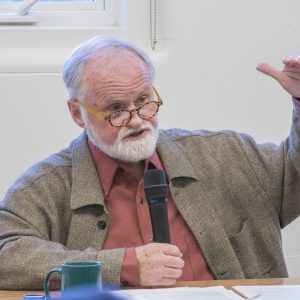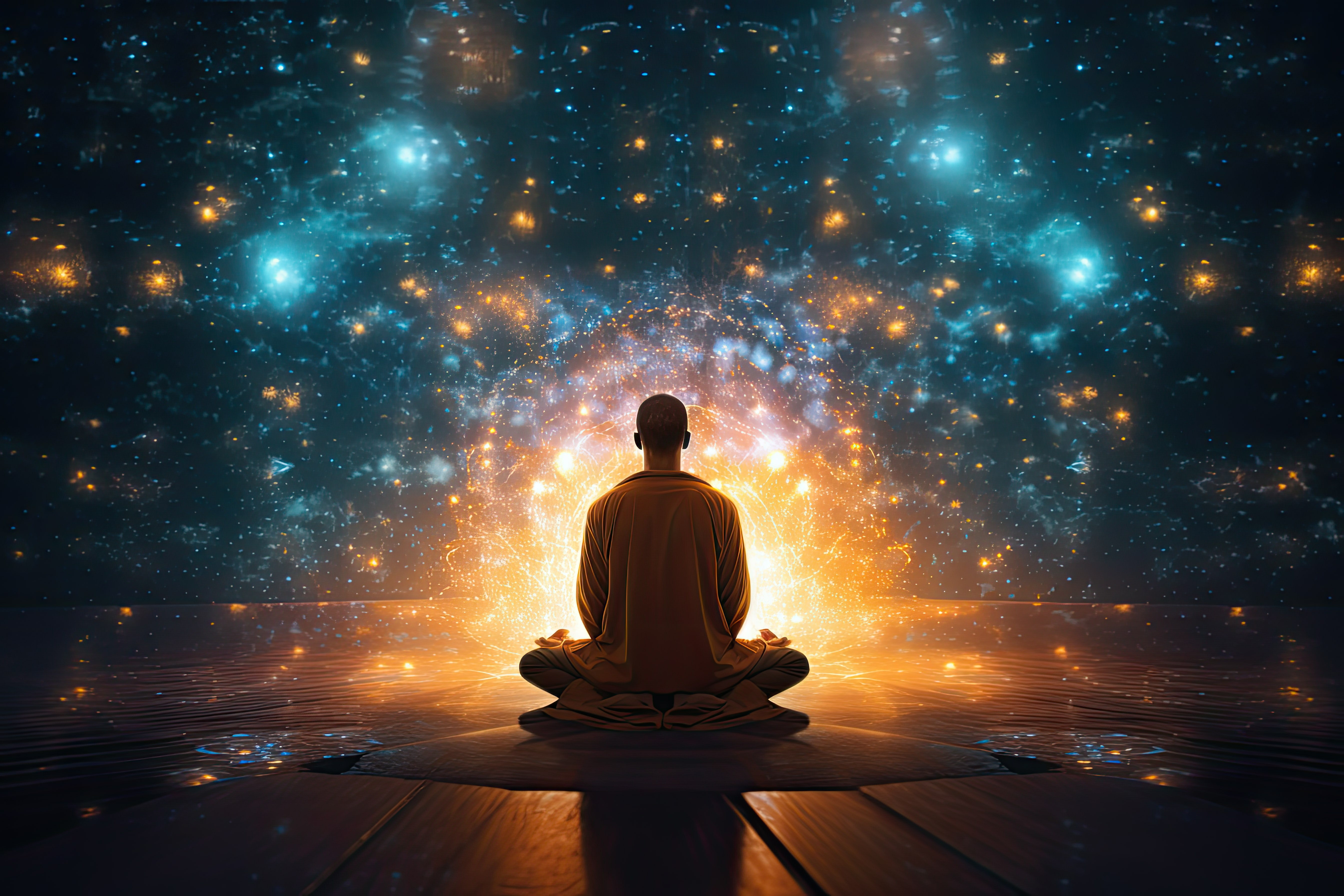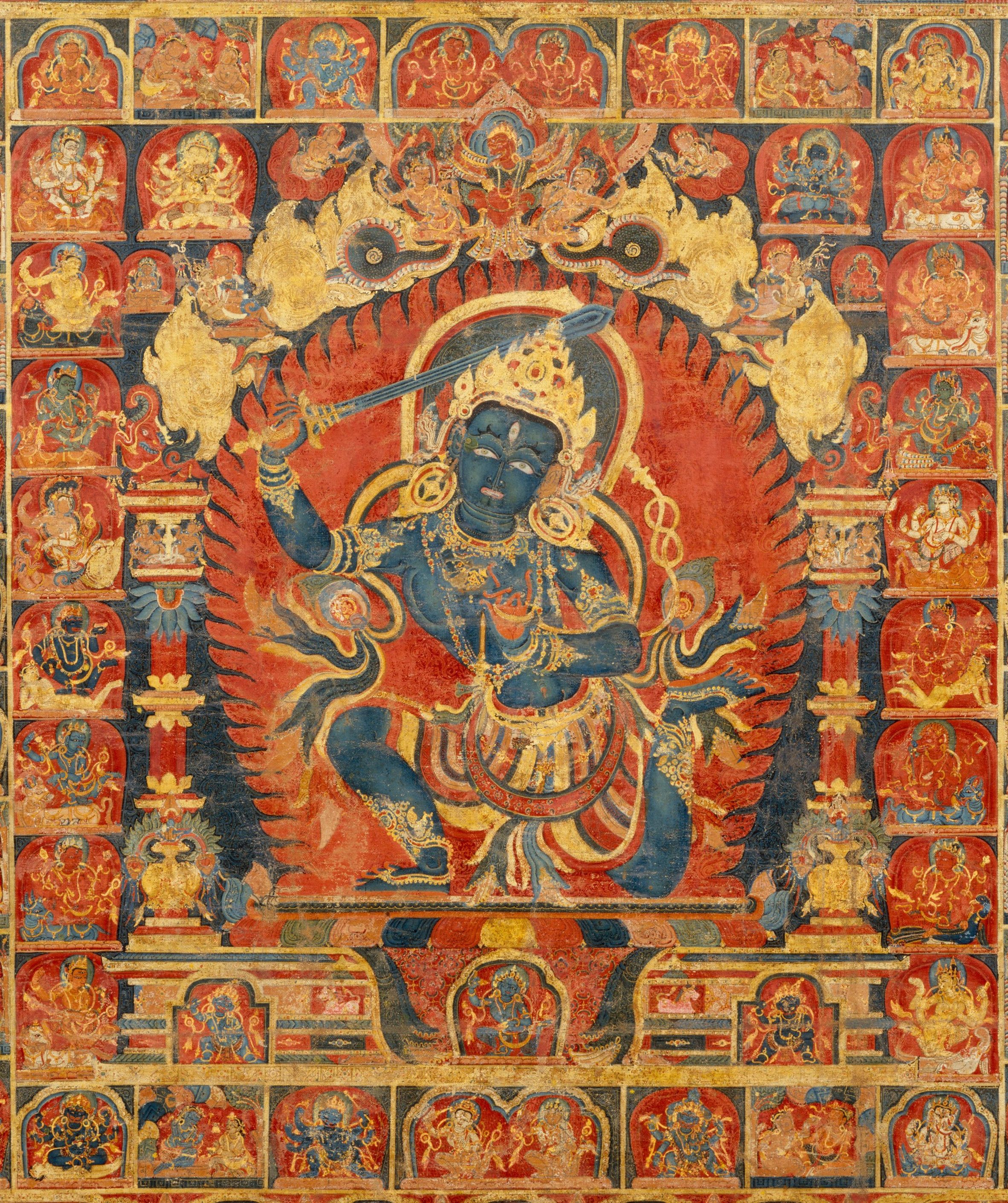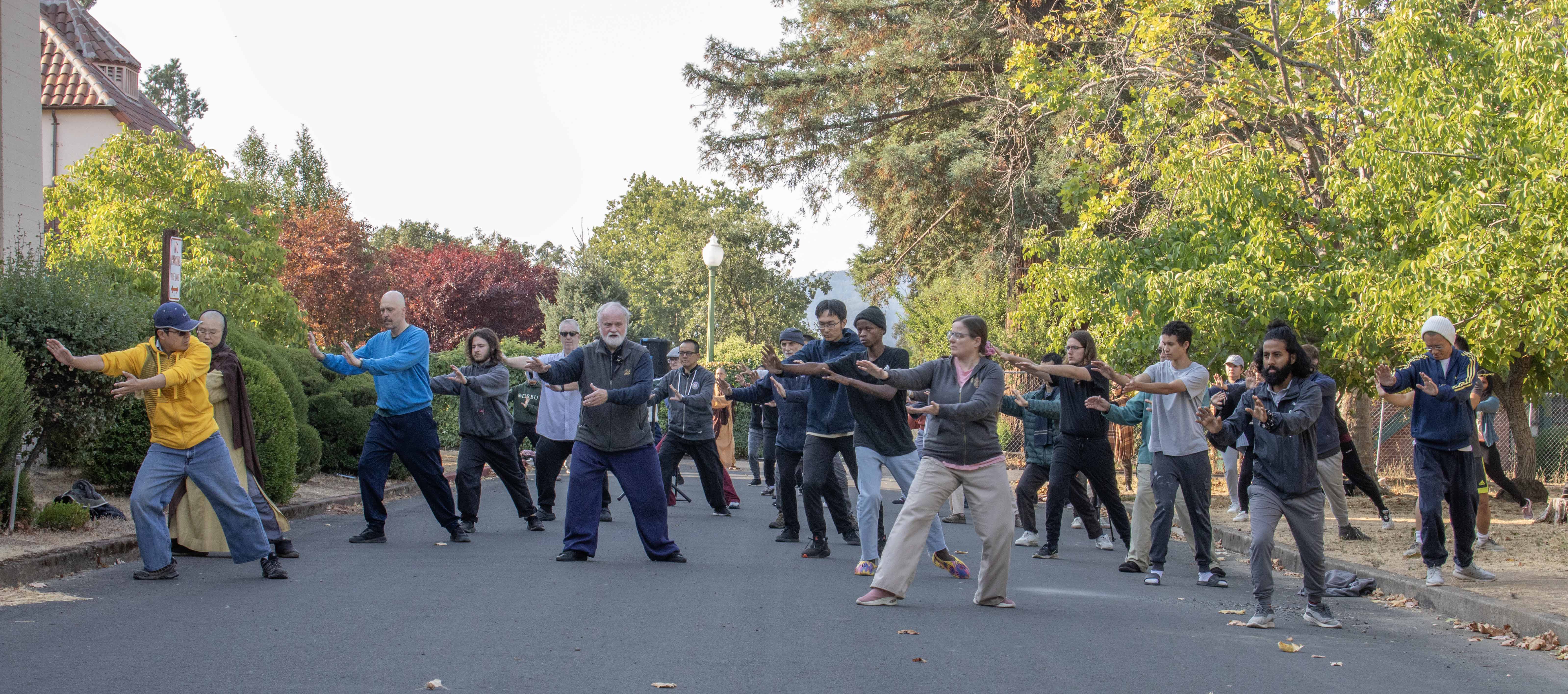
Dean of Academics Martin Verhoven offered the following remarks at a University-wide town hall on April 2, 2020.
In the last few weeks, I have been thinking how the real value of and need for a liberal arts education is now more desperately and clearly evident.
First, I am seeing the absolute need for open-minded, flexible, rigorous critical thinking in positions of leadership, research, and problem-solving. These skills are what a good liberal arts education instill and expand.
Second, and even more vital, is the need for virtue. Knowledge without virtue is blind, and potentially dangerous. Without virtue, the center will not hold. This is the genuine urgently needed ‘PPE’ across the world right now. Cultivating oneself is the root of everything else (Confucius). Being a person, a friend, a parent, a son/daughter, an official, a leader—all depend on character, being trustworthy, holding confidence, having integrity, respect, showing kindness and compassion. These qualities are most needed now. And yet when we need ordinary people to follow the directives of their leaders, the trust, confidence, and respect for authority this requires is in short supply. Often eroded, and squandered by the leaders themselves. Almost more than the biological virus, the spiritual infection of virtue-depletion, is a crisis pandemic. It may seem to some that “cultivating virtue”—the very core of education at DRBU is old-fashioned, out of touch with the needs and dynamics of the “real world,” but I would argue it is right at the very root and heart of the matter. “Virtue is the root; all else are the branches.”
We feel our present situation is unique and unprecedented. It is in degree, but not in kind. In kind, it is as old as the hills (1600 years ago Rome; only 100 yrs. ago in America—my grandparents lived through it). And yet, the questions people are urgently confronting today in the midst of a pandemic, are the very issues we meet in the classics. The classics are timeless and timely, and in reading them, we are as if standing on the shoulders of giants to get a better and longer view of things.
The questions we are discussing today are the very questions we are exploring in our classics courses: what it means to be a person, to live a meaningful life in the face “the vicissitudes of life,” “eight winds” as the Chinese call them; “conditioned dharmas” in the Buddhist lingo. Shakespeare’s Hamlet bemoans, “to suffer the slings and arrows of outrageous fortune.” What are they? They’re all the things that happen to us as we are forced to live life on life’s terms. The real “fact of life,” which lies at the very heart of the human experience, past, present, and future— the plagues, wars, revolutions, birth/death/living/ dying, victory/defeats gain/loss, joy/sorrows of daily living. No matter how we try, we are ever and always brought face-to-face with the constant churning and unsettledness of our existence. And how are we to make sense of and navigate life’s ups and downs? This overriding concern is at the very essence of the classics pursuit. Not in spite of these disjunctions and uncertainties, but because of them that these authors thought deeply, examined their lives, wrestled with, and wrote what they did; often at risk of offending the authorities and received opinions of their time. So, we should not feel that a “liberal arts” education now is a luxury, or peripheral to the “real world.” Not so! This pandemic is not “interrupting” our learning, but it is actually advancing it by giving our inquiries laser-focus, heightened relevance. And if we really apply ourselves we will actively be doing a liberal arts education, not simply passively “getting” one.
Finally, I urge us all to go back with renewed vigor to our books, our classes, our discussions (even if remote for now). Avoid the all too common tendency in difficult times to cut away the higher realms, the most noble and lofty capacities of humanity, leaving only the brute animal instincts and behaviors. Equally resist the nihilistic impulse in times of disorder and uncertainty to mock all assumptions of meaning, order, and purpose. Instead, take one of the best medicines we have to counter feelings of powerlessness, and anxiety. There exists an exquisite, unfailing antidote to the cynicism, panic, and despair that descends on us in times of crisis—the antidote: great reading, clear thinking, deep study, quiet meditation, caring for each other, and cherishing good friends in good conversation. Shelter in this place: in the preciousness, beauty, fragility yet staying power of dear friends and bright learning. The campus may be closed, but we can still keep our lights on.
Be well; be bright!
Classics Reading List on Plague
Giovanni Bocaccio, Decameron (1351)
Mary Shelley, The Last Man (1826)
Daniel Defoe, A Journal of the Plague Year (1722)
Aeschylus, Oedipus Rex
Alessandro Manzoni, The Betrothed (1827)
Yuri Herrera, The Transmigration of Bodies (translated into English by Lisa Dillman)
Vladimir Sorokin, The Blizzard
Sjón, Moonstone: The Boy Who Never Was
Edgar Allan Poe, The Masque of the Red Death
Jack London, The Scarlet Plague (1912)
Hermann Hesse, Narcissus and Goldmund (1930)
Gabriel Garcia Marquez, Love in the Time of Cholera
Chris Adrianm The Children’s Hospital (2006)
Albert Camus, The Plague (1947)
Stephen King, The Stand
P.D. James, The Children of Men (1992)
Jose Saramago, Blindness (1997)
John le Carré, The Constant Gardener (2001)
Jim Crace, The Pesthouse (2008)


